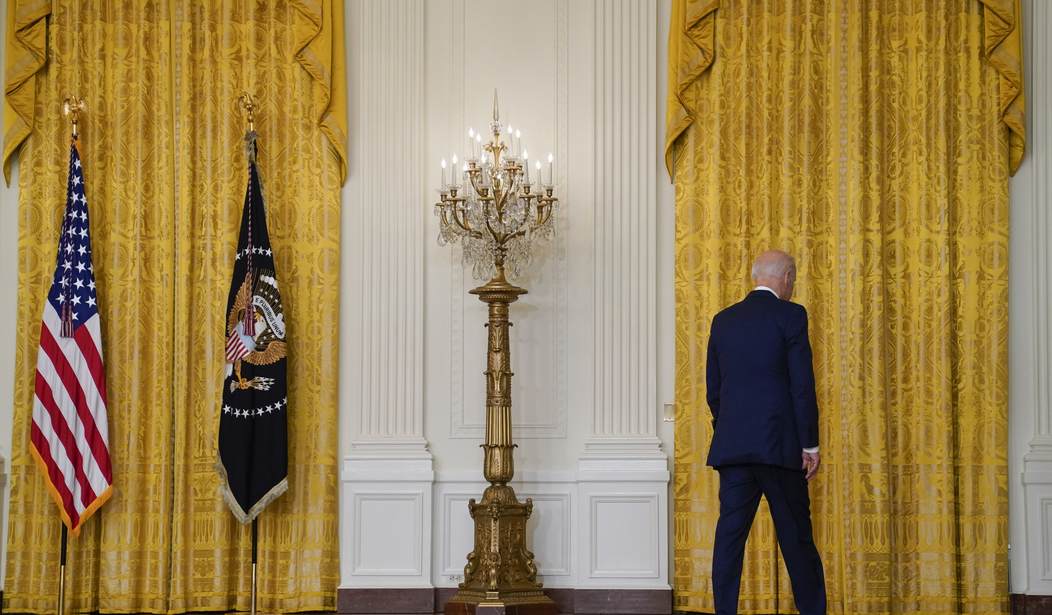Joe Biden ran for the presidency on a promise to leverage his nearly 50 years in office to restore American prestige. He said he was a foreign policy expert who would bring that expertise to bear to make America safer and vowed to work more closely with our allies.
His self-inflicted defeat and deadly fiasco in Afghanistan has exposed that for what it always was: a hollow lie.
Indian geostrategist Brahma Chellaney, writing in Japanese leading publication Nikkei, blasts Biden and ticks through the many reasons Afghanistan will prove to be a catastrophe across Asia.
U.S. President Joe Biden paved the way for the Taliban sweep of Afghanistan by pulling the rug out from under the Afghan military’s feet. The sudden withdrawal of some 18,000 U.S. civilian contractors effectively disabled the Afghan military’s planes and helicopters, leaving ground troops without close air support and emergency logistics, including medical evacuation, and rendering the reputable special forces immobile and out of action.
Historians will be baffled that the world’s mightiest power waged war for two decades to make the Taliban, the world’s deadliest terrorists, great again. But the immediate message from Biden’s Afghanistan disaster is that U.S. allies cannot count on America when the chips are down. The damage to America’s reputation and credibility could potentially herald a paradigm shift in international geopolitics.
The largest beneficiary, Chellaney writes, is China, which now has a much more free hand in Asia and can now strengthen its alliance with Pakistan. This, in turn, hurts India, the world’s largest republic, which had been strengthening its ties with the world’s most powerful republic — the United States — during the Trump years.
Taiwan also suffers, as do Japan and South Korea. NATO is weakened according to the Germans.
Given Afghanistan’s strategic location at the crossroads of Central, South and Southwest Asia, the greatest strategic fallout from Afghanistan’s security and humanitarian catastrophe is likely to be felt in the Asian region. This is ironic because Biden sought to justify his withdrawal as necessary to focus on the great-power competition with China.
In reality, the void opened by America’s retreat has only given greater strategic space for China, Russia and Iran to expand their strategic footprints. For securing oil deliveries, the Taliban are now paying a cash-strapped Iran in dollars from their lucrative narcotics trade.
Biden’s justification does not make geostrategic sense, even if he truly wanted to end the war. When Biden took office, the United States had just 2,500 troops in Afghanistan, mostly concentrated on Bagram Air Base. That airbase was key not just to keeping Afghanistan relatively quiescent as a direct threat to the Taliban while talks with the Afghan government continued, it was a platform from which the United States could project force across Asia. It provided a rearguard in an allied country that China would have had to worry about should it strike Taiwan. Now that threat is removed. That prime real estate is now in the hands of the enemy, whom Biden has armed with billions of dollars in U.S. weapons, vehicles, and aircraft.
All the hardware and technology in the world don’t matter if the commander-in-chief is feckless and prone to making self-defeating decisions.
Related: Joe Biden Is Now the World’s Top Arms Supplier to Terrorists
Reinvigorating the Taliban by giving them arms, armored vehicles, an air force, and a country will not end the war. It will just kick it into another gear. Militias that want to fight to free Afghanistan from the Taliban will have to fight against American hardware. American and allied troops will find themselves battling that gear on battlefields for years to come. It will power jihadist insurgencies in Asia and the Middle East. Some of the aircraft may become suicide bomb vehicles.
Chellaney focuses on the damage done to India.
One definite loser from the Afghanistan debacle is India, whose security risks are coming under siege from the Taliban-Pakistan-China coalition. India, one of the largest aid donors to Afghanistan, had a big presence in that country, but its diplomats and civilians were among the first to flee.
Since last year, India has been locked in military standoffs with China, its leading adversary. But if India now faces a greater terrorist threat from across its western borders, it will have less capacity to counter an expansionist China.
The beneficial effects of Biden’s retreat from Afghanistan all point to China, which was paying the Biden family millions of dollars through a CCP-connected energy company for years prior to the 2020 election. The files on Hunter Biden’s laptops provide copious evidence of the financial connections between the Bidens and the Chinese Communist Party. Media and Big Tech censored those stories in the weeks prior to the 2020 election.
Chellaney finishes up by noting that Biden’s betrayal of the Afghan government will be noticed by all U.S. allies and they will have to reevaluate their own security and their relationships with the United States as a result.









Join the conversation as a VIP Member